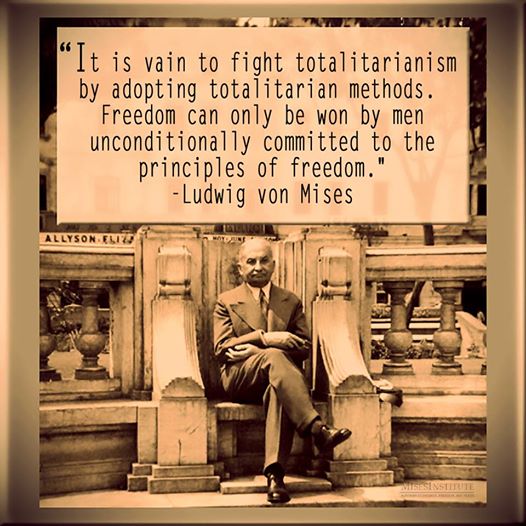My earlier post about the bakers that refused to bake a Trump theme cake lead me to another thought. I oppose discrimination. Personally, I find disassociating with somebody because of their race, religion, gender, age, etc. to be a form of collectivism and you know how much I hate collectivism. Even though I oppose discrimination I also oppose forcing people to associate with people they don’t want to associate with. This puts me at odds with a lot of people who oppose discrimination. In their eyes, because of my unwillingness to use force to solve what I see as a problem, I don’t actually oppose discrimination but merely pay lip service to doing so. This is a common argument between people who use force to get what they want and people who try to convince people that what they want is a good thing.
Most of the people I know who identify themselves as alt-right really dislike me because I don’t believe pushing national socialists out of helicopters is an effective way to bring about an individualist society. How can I claim to be a serious anti-collectivist if I’m not willing to kill collectivists? As I’ve said before, the ends reflect the means. If you use force to make people bend to your will, you’re not moving individual freedom forward. In the end you’ll simply replace one tyranny with another form of tyranny.
Discrimination is similar in that regard. If you force, say, a white man who is racist against blacks to associate with blacks, you have furthered discrimination. Of course, some will say that discrimination against white racists is acceptable just as many alt-righters will say that violence against collectivists is acceptable. However, the problem of discrimination hasn’t actually been solved, it has just been amplified. Instead of there being a white man who discriminates against blacks we now have him and a government that discriminates against white racists. Simply forcing somebody to act against their will doesn’t solve the problem. At best it will conceal the problem, at worst it will motivate the target to increase the severity of their actions in an act of rebellion.
How can discrimination be reduced without coercion? First, if you want to protect a discriminated group from violence, help makes of that group harder targets. Teach them how to defend themselves, help them organization mutual defense groups, walk them through the process of obtaining a carry permit and firearm, etc. That increases the cost of violently discriminating against them. Second, lead by example. Choose your friends by the content of their character, not the color of their skin. Do business with people who are being discriminated against. Stand by them when somebody is discriminating against them. Show everybody who watches you that your life has benefited from not discriminating.
This applies to anything. If you want to advance individual freedom, lead by example. Live a life as free as you can, discuss the benefits of individual freedom with statists, and continue to educate yourself about individual freedom so that you can answer questions put forth by both sympathizers and critics. Make yourself what you want to see in the world. If people see that your benefiting from your way of life, they may decide that your way of life isn’t as terrible as they expected it to be and come around to your way of thinking. Then the problem you perceive will actually be solved instead of covered up or amplified.
